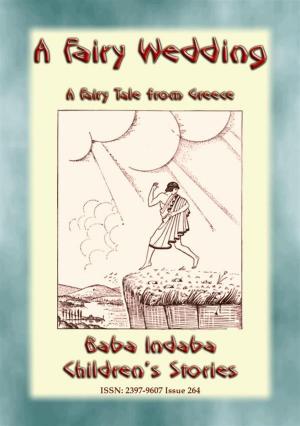THE LETTER OF ARISTEAS - A Book of the Apocrypha
Nonfiction, Religion & Spirituality, Bible & Bible Studies, Study, Old Testament, Reference| Author: | Anon E. Mouse, Edited by Rutherford H. Platt, Jr. | ISBN: | 9788822802729 |
| Publisher: | Abela Publishing | Publication: | July 28, 2017 |
| Imprint: | Language: | English |
| Author: | Anon E. Mouse, Edited by Rutherford H. Platt, Jr. |
| ISBN: | 9788822802729 |
| Publisher: | Abela Publishing |
| Publication: | July 28, 2017 |
| Imprint: | |
| Language: | English |
The Letter of Aristeas is an apocryphal text, or a book not included in the Bible. Also known as the Letter of Philocrates, was written in the second century BC in the Hellenistic states of Greece. Josephus, the one who paraphrases two fifths of the text, attributes the text to Aristeas, who allegedly wrote it for Philocrates. The letters are the earliest texts known to man to contain a reference to the Great Library at Alexandria.
The Letter tells that Demetrios of Phaleron, a librarian in the Great Library, urged Pharaoh Ptolemy II Philadelphus to obtain a Greek translation of Hebrew laws. The king agreed and allegedly sent lavish gifts to Jerusalem and granted freedom to numerous Jewish slaves and in return requests that six members of each of the twelve tribes of Israel travel to Alexandria to translate the Torah. The validity of the text is questioned by many scholars, however, there was indeed a translation of the Pentateuch during the early Ptolemaic Period.
The King weeps for joy when the translators arrive in Alexandria and asks several important philosophical questions during the next seven days of the translation. The whole translation of the ancient Hebrew laws into Greek took the seventy two translators exactly seventy two days to complete. The Jewish people living within Alexandria at the time, after hearing that their sacred laws had been translated into Greek, requests copies of the translation and put a curse on anyone who would dare change the translation. After the translation was complete, Ptolemy II Philadelphus rewards the translators with lavish gifts and sends them on their way.
The Letter of Aristeas is an apocryphal text, or a book not included in the Bible. Also known as the Letter of Philocrates, was written in the second century BC in the Hellenistic states of Greece. Josephus, the one who paraphrases two fifths of the text, attributes the text to Aristeas, who allegedly wrote it for Philocrates. The letters are the earliest texts known to man to contain a reference to the Great Library at Alexandria.
The Letter tells that Demetrios of Phaleron, a librarian in the Great Library, urged Pharaoh Ptolemy II Philadelphus to obtain a Greek translation of Hebrew laws. The king agreed and allegedly sent lavish gifts to Jerusalem and granted freedom to numerous Jewish slaves and in return requests that six members of each of the twelve tribes of Israel travel to Alexandria to translate the Torah. The validity of the text is questioned by many scholars, however, there was indeed a translation of the Pentateuch during the early Ptolemaic Period.
The King weeps for joy when the translators arrive in Alexandria and asks several important philosophical questions during the next seven days of the translation. The whole translation of the ancient Hebrew laws into Greek took the seventy two translators exactly seventy two days to complete. The Jewish people living within Alexandria at the time, after hearing that their sacred laws had been translated into Greek, requests copies of the translation and put a curse on anyone who would dare change the translation. After the translation was complete, Ptolemy II Philadelphus rewards the translators with lavish gifts and sends them on their way.















